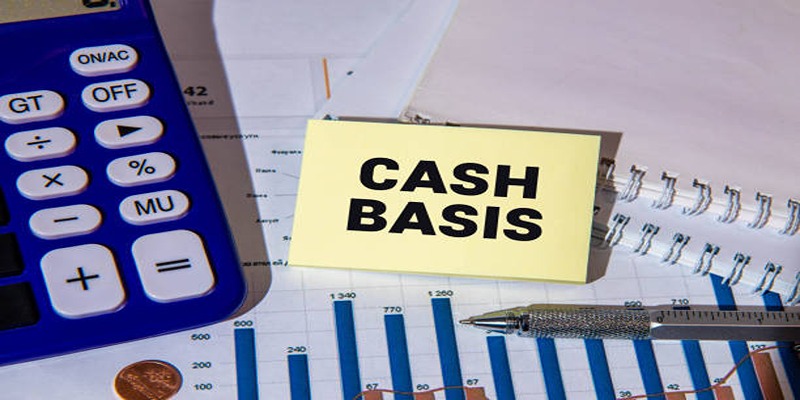When starting a business, opening the right bank account is an important step. Business bank accounts help keep personal and company finances separate, making it easier to manage money, track expenses, and handle taxes. There are different types of accounts for various needs, like checking accounts for daily use or savings accounts for future growth. Understanding these choices can help you select the best account to support your business’s success.
Benefits of a Business Bank Account:

- Professionalism: Establishing a business account strengthens your business identity in the perspective of clients as well as partners. It appears more formal for "Smith & Sons Co." to handle payment entries instead of sending funds to an individual account.
- Simplified Bookkeeping: A clear divide between personal finances and business operations enables smoother monitoring of business revenue alongside spending costs and financial streams.
- Tax Compliance: A clear division between personal and business funds makes tax reporting and audits far less stressful.
- Access to Financial Services: Many business accounts offer tailored services like payroll management, business loans, and credit lines.
1. Business Checking Account
A business checking account is usually the first account a business owner opens, and for good reason. It acts as the financial hub for your day-to-day operations.
Best For
Managing frequent transactions (e.g., paying vendors, receiving customer payments, or covering expenses).
Features to Look For:
- Low or No Fees: Many banks charge monthly maintenance fees, but some waive these if you meet a minimum balance.
- Free Transactions: Check the limitations on free deposits, withdrawals, and transfers.
- Integration Options: Some accounts integrate with accounting software for seamless financial management.
2. Business Savings Account
A business savings account is ideal for businesses building a financial cushion or setting money aside for future growth.
Best For:
- Earning interest on surplus funds.
- Saving for expansion, emergencies, or future investments.
Features to Look For:
- Competitive Interest Rates: Some banks offer higher interest rates for business savings compared to personal savings accounts.
- Withdrawal Limits: Savings accounts typically have restrictions on the number of withdrawals per month, so ensure this aligns with your needs.
- Automatic Transfers: Some accounts allow you to set up automatic transfers from checking to savings.
Example:
Imagine you're running an e-commerce store. A business savings account might be used to set aside profits for buying new inventory or investing in upgraded website software.
3. Merchant Services Account
If your business accepts credit or debit card payments, a merchant services account should be on your radar.
Best For:
- Retailers, restaurants, or any business where customers frequently pay using cards.
Features to Look For:
- Transparent Processing Fees: Merchant accounts charge fees for each transaction, so choose a provider with competitive rates.
- Point-of-Sale Systems: Some accounts come bundled with POS systems to accept payments in person.
- Online Payment Gateways: If you run an online business, ensure the account supports e-commerce transactions.
Example:
A small clothing boutique could benefit greatly from a merchant services account to seamlessly process in-store card transactions and online orders.
4. Business Money Market Account
A money market account combines features of both savings and checking accounts. It offers higher interest rates than a typical savings account but also allows for limited check-writing capabilities.
Best For:
- Businesses wanting to grow their savings while maintaining some liquidity.
Features to Look For:
- High Interest Rates: Compare rates across banks to maximize your earnings.
- Limited Transactions: Money market accounts often cap withdrawals or transactions to six per month.
- Minimum Balance: Be prepared to meet higher balance requirements to avoid fees.
Example:
A consulting firm holding on to retained profits might use a money market account to earn interest while keeping funds accessible for occasional business expenses.
5. Business Certificate of Deposit (CD)
A business CD allows you to invest funds for a fixed period at a guaranteed interest rate. While this type of account ties up your money temporarily, it offers a predictable return.
Best For:
- Businesses with excess cash reserves that aren't needed for immediate expenses.
Features to Look For:
- Flexible Terms: CDs range from a few months to several years. Choose based on when you'll need the funds.
- Penalties for Early Withdrawal: Understand the consequences if you pull out money before the term ends.
Example:
A corporate training company might park a significant portion of its profits in a CD for 12 months to earn higher returns while waiting for ideal investment opportunities.
6. Foreign Currency Account
If your business operates internationally or frequently deals with foreign clients, a foreign currency account can be a game-changer.
Best For:
- Businesses that handle international transactions.
Features to Look For:
- Currency Options: Ensure the account supports the currencies you trade in most frequently.
- Fee Structures: Look for competitive foreign exchange rates and low transfer fees.
- Integration: Accounts that sync with global financial systems and payment platforms offer added convenience.
Example:
A digital marketing agency helping global clients might use a foreign currency account to receive payments in multiple currencies without worrying about exchange rate fluctuations.
How to Choose the Right Business Bank Account

Selecting the right account depends on your business model and goals. Here’s a simple checklist to guide your decision-making process:
- Understand Your Needs: Are you mainly looking for a transaction account, a savings option, or a specialized account like merchant services?
- Compare Fees: Look out for hidden charges like maintenance fees, transaction limits, and overdraft penalties.
- Check for Perks: Some banks offer extras like free business advising, software integration, or special rewards for account holders.
- Read Reviews: Other business owners’ experiences can shed light on what to expect.
- Consider Scalability: Choose an account that can grow with your business needs.
Final Thoughts
Choosing the right bank account for your business is a crucial decision that can impact your daily operations and long-term growth. Take the time to evaluate your options based on your business’s unique needs and goals. By carefully considering factors like fees, features, and scalability, you can find an account that supports your financial success. Remember, investing effort into this choice now can save you time, money, and headaches down the road.












